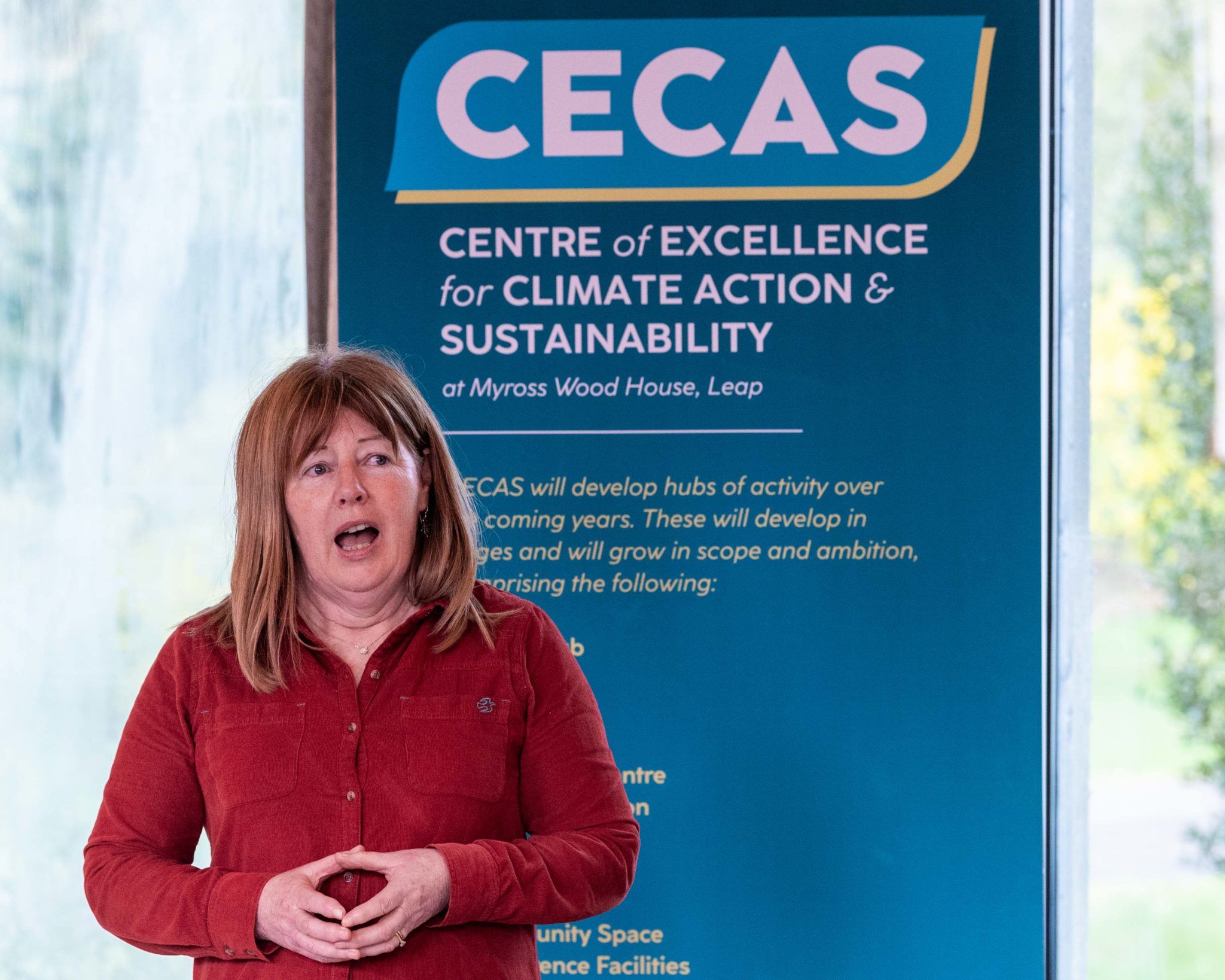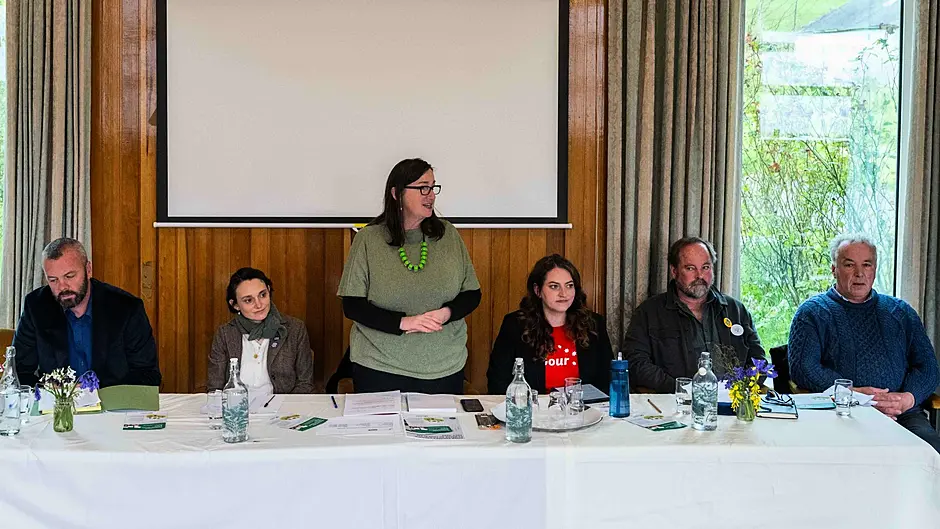THE proliferation of derelict homes in West Cork, the lack of harvesting of rainwater and the need to enact the Council’s ambitious climate action plan were among the issues raised at a recent ‘hustings’ meeting for local election candidates.
The meeting, organised by the Cork Environmental Forum (CEF), in conjunction with the climate action centre (Cecas) in Leap outside Skibbereen, invited a candidate from each party to address the audience on climate-related matters.
 Bernie Connolly of the Cork Environmental Forum, which co-hosted the event, introduced the evening. (Photo: Andy Gibson)
Bernie Connolly of the Cork Environmental Forum, which co-hosted the event, introduced the evening. (Photo: Andy Gibson)
The panel, introduced by Bernie Connolly of CEF and chaired by Trish Lavelle of Cecas, comprised Isobel Towse (Social Democrats), Evie Nevin (Labour), Brendan McCarthy (FG), Rory Jackson (Green) and Dónnchadh Ó Seaghdha (Sinn Féin).
Apologies were received from four Fianna Fáil members and two independents.
The panel was asked to discuss the recently-published Climate Action Plan from Cork County Council and what they saw as the key priorities.
Isobel Towse said she believed the Council hadn’t appointed a biodiversity officer yet and wondered if there was a chairperson appointed to oversee the plan.
She suggested bathing water in West Cork be tested all year round, as sea swimming was no longer a seasonal activity.
Lough Hyne needs a management plan, she added, and said that on a personal level, she was against the harvesting of kelp and the production of plastics.
She also suggested the Council employ more sustainable building practices – a suggestion echoed by Sinn Féin candidate Dónnchadh Ó Seaghdha.
Ms Towse added that on the canvass very few people were asking about climate, but roads were the big priority.
Labour’s Evie Nevin said she was wary of big plans that often ‘never see the light of day’ and said that Cork councillors needed to ‘vigorously’ implement the climate plan.
But she also drew attention to the 1,600 vacant buildings in the Skibbereen area, and 5,000 across the entire Cork South West constituency.
She said when she asked about a register of these buildings in the Skibbereen area, she was told there was none, due to ‘GDPR’.
She said this appeared to be the only electoral area quoting GDPR as a reason not to have a register.
She said the use of vacant and derelict homes for housing needed to be considered as they were already connected to infrastructure like water and sewerage – which is causing issues with new housing schemes.
Mr Ó Seaghdha, a former town councillor, said that dumping and pollution were factors that needed to be tackled and he would like to see more community gardens developed, more EV chargers and no more building on floodplains.
He also suggested the use of natural flood defences where possible, rather than manufactured flood schemes.
Brendan McCarthy of Fine Gael, also a former town councillor, said the Council had a major role in the transition to a carbon-neutral society, and it should take the lead in Cork on that.
‘But you have to bring the people with you,’ he said. He pointed out that he was the driver of the campaign which blocked a proposed thermoplastics factory in Skibbereen some years ago.
‘Change is possible,’ he said.
But he said he was ‘baffled’ by the lack of local authority water harvesting in the county, especially given the heavy rainfall in recent years.
Rory Jackson, who runs programmes involving young people cleaning coastal areas, said he had found the Council very supportive of the schemes but, he said, the climate plan was a ‘very large document’ and, if elected, it was up to the panel members to make sure it was carried out.
He said he would also like to see the ban on inshore fishing reinstated and he would like to see the Council restoring its own lands to native forestry.
New buildings, like public toilets, could play their part by having grassy roofs, and the Council could have a fleet of vehicles fuelled by hydrotreated vegetable oil.
During the Q&A session, a member of the public raised the issue of the building of whiskey warehousing at a site at Tullig near Leap, on a site which is zoned agricultural. ‘We feel like we are not being heard,’ she said of the campaign opposing the plan.
Mr McCarthy, a school principal in nearby Union Hall, said he felt the timing of the plastics factory plan been favourable to campaigners.
‘If it had happened 10 years earlier, I think it would have gone ahead,’ he said.
The issue of illegal gorse fires was also raised, with all candidates saying they need to be addressed, although Mr Ó Seaghdha, a farmer, said there was some merit in burning off vegetation during the allowed times, as leaving it go out of control could represent a greater fire risk.








